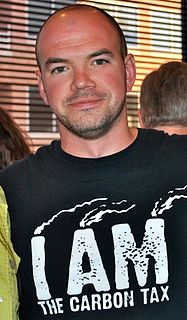A Quote by Kshama Sawant
It's not just an economic crisis that capitalism has created. We also face an environmental catastrophe created by a handful of gigantic fossil fuel corporations.
Related Quotes
We promote new fossil fuel infrastructure, from airport expansion and coal mines in the U.K. to oil pipelines in the U.S. Investments are meant to build and secure our shared future - but all these fossil fuel investments are directly fuelling the climate crisis that threatens to undermine that future.
We've now become conscious of the uncalculated social, economic, and environmental costs of that kind of "unconscious" capitalism. And many are beginning to practice a form of "conscious capitalism," which involves integrity and higher standards, and in which companies are responsible not just to shareholders, but also to employees, consumers, suppliers, and communities. Some call it "stakeholder capitalism."
We need to reject not only outdated fossil-fuel technology, but also an outdated economic system and an outdated corporatist political system. The progressive view is that we are smart enough and ethical enough to not have to be subservient to corporations. We can create our own resilient, localized communities.
When Cuba lost their fossil fuel pipeline when the Soviet Union collapsed in 1990. Overnight they had no choice, they had to transition to clean energy, they didn't have any fuel to burn, and they also had to transition to a healthy food system, an organic system - their economy is crashing, this was not a planned transition. This was a crisis, but a crisis nonetheless, in which pollution went away. And it's very instructive to see what happened to their health.
The economic distress of America's inner cities may be the most pressing issue facing the nation. The lack of businesses and jobs in disadvantaged urban areas fuels not only a crushing cycle of poverty but also crippling social problems such as drug abuse and crime… A sustainable economic base can be created in the inner city, but only as it has been created elsewhere: through private, for-profit initiatives and investment based on economic self-interest and genuine competitive advantage.
Capitalism, the ogre of those protesting Wall Street, has suffered a public relations crisis in the wake of the global economic collapse. But any remedy to the systemic corruption that led to the collapse should not displace recognition that capitalism creates wealth. Capitalism, and no other economic system, has raised millions from poverty around the world.



































